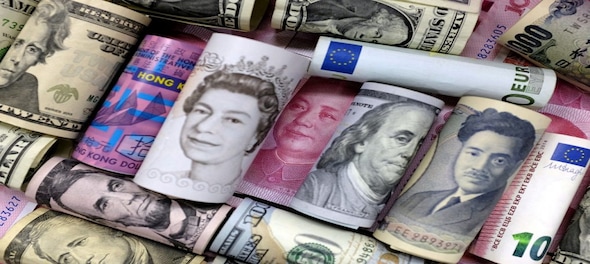
Hong Kong’s leading English Newspaper, South China Morning Post, in its edition dated December 28, had a headline which caught my attention for two curious reasons. First, such an event rarely happens, and the second — it appears to have escaped the attention of Indian media. The paper’s headline mentioned, "Hong Kong, Indian Customs arrest 8 in joint crackdown on syndicate that laundered HK$500 million in bogus diamond trading scheme".
It was curious because — rarely does an enforcement administration so publicly acknowledge the intelligence and inputs received from another agency; and such acknowledgement, if any, is restricted to only internal correspondence.
The details of the case as garnered from the press release of Hong Kong Customs shows that an operation codenamed ‘Gem Crusher’ had been launched in December against a money laundering syndicate based on intelligence exchange with Indian Customs. The press release said; "...the investigation revealed that the syndicate members established diamond trading companies in both Hong Kong and India."
The syndicate was suspected to have exported synthetic diamonds of low value from Hong Kong to India but lodged a false declaration as natural diamonds of high value in 2021 in a bid to reasonably transfer significant amounts of suspicious funds from India to Hong Kong. The total amount of the suspicious transaction reached HK$ 500 million in the captioned period.’
Raids conducted in Hong Kong of the suspected premises led to the seizure of synthetic diamonds, currency equivalent to HK$ 1 million, several mobile phones, trading, and bank documents. Four persons believed to be ring leaders and masterminds were also arrested.
This case raises the larger issue of Trade Based Money Laundering (TBML). The Financial Action Task Force (FATF) the inter-governmental organisation that designs and promotes policies and standards to combat financial crime, defines TBML as ‘the process of disguising the proceeds of crime and moving value through the use of trade transactions in an attempt to legitimise their illegal origin or finance illicit activities’.
As FATF notes; "...the aim of TBML-unlike trade related offences-is not the movement of goods, but rather the movement of money, which trade transactions facilitate." Thus, for instance nobody pays good money for lab grown, synthetic diamonds which are fake and poor replicas of natural diamonds. Lab grown diamonds are lesser in value by at least 80% than a natural diamond. To the untrained eye they look the same and hence are a favourite commodity among criminals for TBML purposes.
As the Global Financial Integrity (GFI) points out TBML is a highly effective way of integrating large volumes of criminal proceeds with legitimate income and is attractive to organised crime groups because it is hard to detect, track, investigate, due to its transnational nature and the complexity of the international trade system.
TBML, if unchecked, has severe adverse effects on the economy. It perpetuates criminal activities, subjects legitimate business to unfair competition and increases corruption. A FICCI CASCADE study suggests that the impact of such illicit financial flows works up to a humongous 5 percent of the country’s GDP.
The World Customs Organization (WCO) emphasises that the movement of illicit money traversing international borders as a matter which falls in the domain of Customs. The WCO states that Customs authorities have an essential role to play in preventing money laundering activities as they are effectively the ‘tip of the spear‘ due to their unique positioning at border areas. In fact, the WCO recommendation which reaffirms the role of Customs in the fight against money laundering was adopted by the WCO council as early as in 2005.
While there are several TBML typologies, over-invoicing of imports remains a perennial favourite amongst criminals. Despite the WCO recommendation, over invoicing does not attract the same scrutiny of customs administrations as other offences. Customs Duty is in most of the commodities is linked to value; trained as the customs officer is to detect loss of revenue which under-invoicing potentially would result in, over invoicing consequently does not attract attention.
Over-invoicing would in effect mean additional tax revenue. Thus, there is a dangerous degree of complacency while dealing with these situations. The consequence of over-invoicing is rarely appreciated. What over-invoicing means is that there is some criminal activity within the country which has generated proceeds which now need to be laundered. Trade actively colludes and provides that cover for laundering.
Over-valuation is ultimately misdeclaration of value. While money laundering in the Indian context would fall more in the ambit of the Enforcement Directorate (ED), the trigger for action by them would be the detection by the Indian customs of such misdeclaration of values. The case detected by Hong Kong customs with its close Indian linkages should activate the Indian customs and ED.
The detection made in Hong Kong is sensational to put it mildly. The operation reveals what cooperation between agencies across borders can achieve. Credit must be given to the Central Board of Indirect Taxes & Customs (CBIC) and the Directorate of Revenue Intelligence (DRI) who had organised the recent Global Conference on Cooperation in Enforcement Matters (GCCEM) with the precise aim of enhancing cooperation and collaboration among international enforcement agencies.
The theme of the GCCEM conference was ‘It Takes a Network to fight a Network’ — and this is what has happened in the present case. A network of enforcement officials successfully outwitted the nefarious network of criminals. More such networking is required to make the world a safer place.
—The author, Najib Shah, is former Chairman, Central Board of Indirect Taxes & Customs. The views expressed are personal.
Read his previous columns here
(Edited by : C H Unnikrishnan)
First Published: Dec 29, 2023 1:59 PM IST
Check out our in-depth Market Coverage, Business News & get real-time Stock Market Updates on CNBC-TV18. Also, Watch our channels CNBC-TV18, CNBC Awaaz and CNBC Bajar Live on-the-go!



